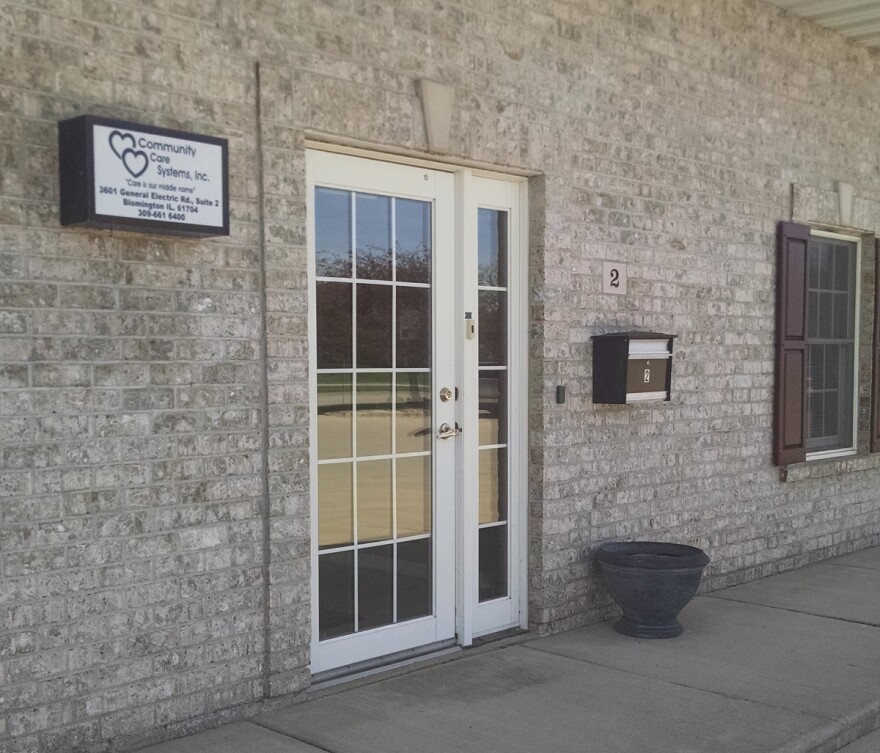More people are caring for a loved one at home as the COVID-19 pandemic leaves them unemployed or apprehensive about care facilities.
Many are first-time caregivers. Some expect the novel coronavirus will prompt more people to keep their loves ones at home.
COVID-19 outbreaks have plagued Illinois' long-term care facilities, accounting for a large chunk of the coronavirus-related deaths in central Illinois. That comes at the same time the region is experiencing historic unemployment rates.
Aggie Hedin is client services manager at Synergy HomeCare in Bloomington. The state-licensed organization provides non-medical care to help people stay independent in their home.
Hedin said Synergy saw a drop in business at the start of the pandemic as more families took over home care for loved once since they were off work. Now, business has risen as more people shy away from nursing homes.
Hedin said the reason is more than the threat of contracting COVID-19. Adult children don't like visitation limits at care facilities.
"It's probably that they can't see them—their loved ones," she said. "Even though the facilities in town have been creative and are trying to keep families involved, it's been tough."
Hedin said lack of social interaction can hurt cognitive ability in the elderly.
"We've always seen that socialization is the best medicine," Hedin said. "And boy, just seeing that they can't even have a meal with their families, they can't go out to eat, they can't go out for therapy."

Some are opting to pull their loved ones out of nursing homes. But home caregiving poses challenges of its own.
Mitch Forrest is with the Central Illinois Agency on Aging. The Peoria-based nonprofit connects caregivers with services in Peoria, Tazewell, Woodford, Fulton, Stark, and Marshall counties.
Forrest said the agency has gotten calls from about 300 new caregivers between March and May, in addition to 30 already on their rolls.
“Maybe they were laid off from a job, maybe they’re working from home, plus trying to provide care to parent and trying to—at least they were—homeschool children at the same time in the same household," he said. "You can imagine the logistics that go into that.”
Forrest said some people are choosing to keep a loved one at home because of COVID fears. Others may have limited options.
“If caregivers were thinking about helping and encouraging a family member to transition into assisted living or a skilled nursing facility, that timeframe is probably dramatically slowed down, or come to a standstill," he said.
Forrest said the quarantine caused caregiving companies to keep their people out of the field, though respite care is starting to become available again. He said many clients still worry about using it because of the coronavirus. Others rely on federally-funded respite care. Forrest said that's been in short supply, too.
All of this amounts to more time spent at home—and more stress and anxiety for caregivers.
Angie Raymer is a caregiver adviser at Community Care Systems, which serves McLean, DeWitt and Livingston counties. She said the pandemic requires caregivers to spend more time with their loved one to maintain social connections and limit their own contacts to prevent spreading the coronavirus to them.

"They haven't been able to get a break," she said. "Being with your loved one that you're caring for, the walls can kind of close in."
In-person caregiver support groups have been suspended to adhere to social distancing guidelines, Raymer said, but they hope to start a virtual support group soon.
The same is true for Bradley University's Counseling Research and Training Center, which facilitates support groups for the CIAA.
“We’ve been trying to do video conferences and phone sessions with our clients, but the struggle of most of these caregivers being older, they either don’t understand the video or they don’t feel comfortable talking on the phone about their personal stuff going on," said Kaili Ruff, one of Bradley's caregiver counselors. "A lot of them have opted to wait.”
Ruff said it's also limiting their ability to get supplies to caregivers, which is especially troublesome during the pandemic.
"It’s making it harder for them to leave the house to go get things like groceries and stuff, because they don’t have anyone to watch their loved ones and sometimes they can’t take their loved ones with them," she said.
Even as the state moves forward with reopening plans, Ruff said, caregivers remain uneasy.
“I know some of the anxieties that have came up are, now that things are opening back up, trying to decide if they feel like it’s safe enough to go out and start going to stores again, going to restaurants again, or if they feel like that’s still risking their loved one’s life by making those decisions," Ruff said.
Those anxieties likely won't ease until a COVID-19 vaccine or better treatment options are available, she said.
We’re living in unprecedented times when information changes by the minute. WCBU will continue to be here for you, keeping you up-to-date with the live, local and trusted news you need. Help ensure WCBU can continue with its in-depth and comprehensive COVID-19 coverage as the situation evolves by making a contribution.



